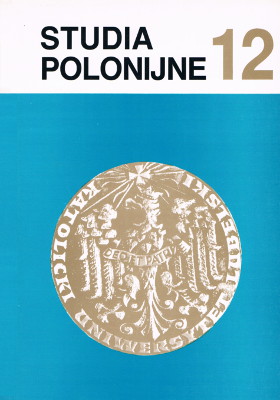The Polish Family in Canada Under the Pressure of Adaptation
Main Article Content
Abstract
The paper draws our attention to the threats to the Polish family under the conditions of cultural clash which is the outcome of migration, but at the same time it points to the possibilities of development, which can be found in such a clash. A difficult trial for a family is, e.g., the change of the standard of living, education based on the great authority of parents became more easy-going way of bringing up the youth, which is typical of the American society etc. The author draws our attention to the necessity of preserving Polish Christian identity in a new setting. We are concerned with that which constitutes the essential values of this identity and not with sentimentally treated national customs and traditions. The family in a new setting is a microterritory on which various civilizational tendencies struggle to prevail. The preservation of the young generation within the Church and Polish culture depends on whether the family and parish are able to show and hand over essential Polish religious and cultural values. The cult of welfare and consumption step by step overpowers greater and greater percent of families of Polish origin, and very effectively eliminates and „melts away” these values. That is why welfare may go hand in hand with spiritual poverty. The tendency towards preserving one's own identity and ability to differentiate between the Polish setting and another one, cannot mean shutting up in one's own ghetto and should be connected with the ability to do creative conscious choices of true values in the pluralistic contemporary world. The author draws one's attention to the fact that only few people understand that moral and cultural otherness connected with Polish descent can be at longer range a serious trump card in the conformistic, mass, and often vulgarized culture.
A good intergenarational contact of Polish family makes that e.g. Poles can and should play a constructive role as the carrier of a positive family pattern. The strengthening of inner forces within the family will reinforce its ability to adapt in a constructive way. The ideal in that respect is a family which preserves Polish ethnic cultural identity, and at the same time takes full part in different aspects of Canadian life.
Polish parishes play an indispensible role here. They can defend many Poles against taking an absurd stand and keeping an opinion that they represent nothing themselves as far as culture is concerned, that they have nothing to offer. Polish parish can defend them against escaping from their own spiritual identity, because this would mean condemning oneself to nothingness.

